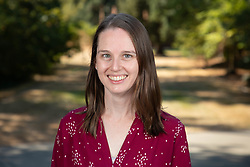Page 58 • (3,733 results in 0.048 seconds)
-
Sociology Minor20 semester hours, including: SOCI 101: Introduction to Sociology 16 semester hours of sociology. Choose from SOCI 210 (Gender and Society), 232 (Research Methods), 240 (Social Problems), 287 (ST in Sociology), 330 (Family), 332 (Race and Ethnicity), 336 (Deviance), 378 (Consumption), 387 (ST in Sociology), 391 (Sociology of Religion), 410 (Social Stratification), 494 (Gender and Violence), 495 (Internship), and 496 (Sociological Theory). STAT 233 may be included in the minor
-
prepare for class, collaborate with other students and complete assignments while away from the campus classroom.”Why Online and Blended Learning?PLU 2020 challenges the University to explore new instructional strategies and support the use of technology in the academic environment. Specifically: “The University should strengthen means and methods for supporting faculty as they work to improve current academic programs, and should encourage faculty to explore the development of new curricular and
-
demonstrate skills in the use of analytical methods required to distinguish research design and analytical methods (qualitative, quantitative, mixed) and quality improvement, and critique and evaluate validity and applicability or research to guide evidence based practice. Student locate, critically evaluate and synthesize evidence from research studies that support the improvement of outcomes in diverse populations. Students will identify practice questions and determine the appropriate method(s) to
-

can study as a PLU sociology student. A sociology degree is excellent preparation for a wide variety of occupations and graduate programs in fields related to social and public services, education, politics and government, law, nonprofit management and business administration. The hallmark of the PLU sociology program is our research-oriented cumulative curriculum, which is designed to encourage your research and writing skills step by step. If you elect to complete a public or private sector
-
nano-onions were studied and the current and current density of the electrocatalysts were compared. Rotating disk electrode (RDE) and rotating ring disk electrode (RRDE) methods were used to analyze the ORR, electrocatalytic behavior, and peroxide intermediate at an electrode rotation velocity of 1600 rpm. Nitrogen-doped carbon nano-onions performed the best of the carbon-based electrocatalysts with a measured current of -0.815 mA and current density of 4.15 mA cm-2. However, this current was at
-

qualitative work – so lots of reading and writing,” Dolan explained. “While my experience is slightly unusual for an intern, I think it demonstrates the variety of work that is done at AG; there’s a lot of technical, quantitative work that must be completed, but if you’re more inclined to do qualitative work, then there are many opportunities for you to do that, as well.” Last fall, Dolan attended a virtual seminar hosted by the Economics Department, where several PLU alumni spoke about economics and how
-

student success. Her research and professional interests include emergency medicine, pediatrics, disaster and emergency preparedness and response, breastfeeding medicine, and methods for investing in student success NCLEX Preparation Biography Hannah Pye hails from Georgia and loves the PNW. She has six years of experience as a staff nurse in the emergency department and has also worked as an administrative nurse. Her teaching experience includes education of both undergraduate and graduate students
Area of Emphasis/Expertise -
The Kurt Mayer Student Research Fellowship In Holocaust StudiesThe Kurt Mayer Summer Scholars program offers generous financial support for PLU students who complete substantive research projects in Holocaust Studies. Two or more fellowships of up to $2500 are awarded each summer for research, reading, and writing, which must lead to the creations of a major paper on a Holocaust topic. Who can apply? PLU students who meet the following qualifications at the time of application: 1. A grade point
-
:30pm – Break 3:00pm – Handling Missing Data in Epidemiology Research: Do Different Approaches Affect How the Federal Income Poverty Ratio Predicts Tap Water Consumption? Mackenzie Mueller Missing data in epidemiology and public health research is often poorly handled, poorly analyzed, and sometimes not even reported at all. This can significantly influence the results of these studies, often causing bias towards or against certain populations. The “quick-fix” solution of using only the complete
-
:30pm – Break 3:00pm – Handling Missing Data in Epidemiology Research: Do Different Approaches Affect How the Federal Income Poverty Ratio Predicts Tap Water Consumption? Mackenzie Mueller Missing data in epidemiology and public health research is often poorly handled, poorly analyzed, and sometimes not even reported at all. This can significantly influence the results of these studies, often causing bias towards or against certain populations. The “quick-fix” solution of using only the complete
Do you have any feedback for us? If so, feel free to use our Feedback Form.


